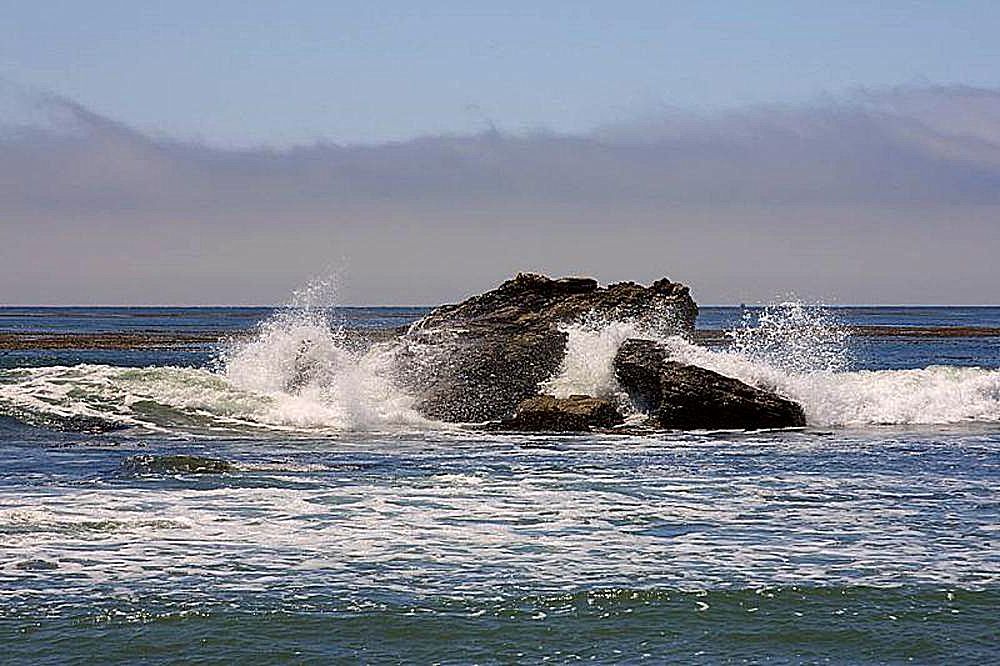Civilization
Involving More Veterans in Marine Conservation Can Restore Our Ocean — and Them

This World Ocean Day, conservation groups, scientists and average citizens across the globe will take part in activities to focus attention on the many threats to the marine environment. While serving with the National Oceanic and Atmospheric Administration (NOAA) between 2017-2021, I championed a wide range of activities to combat these threats, such as reducing marine plastic pollution, curing coral disease, countering illegal fishing, conserving coral reefs, protecting endangered species, restoring habitat, as well as adding new and expanding existing marine protected areas. While we made much progress, more is needed if we want to hand off a healthy ocean to future generations.
As with our ocean, there is another at-risk resource that requires our attention. America’s military Veteran community is suffering from high suicide rates and other mental health challenges caused by post-traumatic stress disorder (PTSD), which have resulted from two decades of nonstop war. While the Veterans Administration has made great progress by establishing the Staff Sergeant Parker Gordon Fox Suicide Prevention Grant Program, some reports indicate that Veteran suicide rates may be as high as 24 per day. That number is unacceptable, and more must be done to reduce it.
How can we confront these two challenges in tandem for the greater good?
Former members of the military can be power tools in protecting the planet. NOAA recognized this several years ago, enlisting Veterans for habitat conservation on the Gulf Coast, across California, in Washington and in Oregon.
Similarly, Veterans Service Organizations (VSO) can gain by adding environmental elements to the portfolio of activities they offer to the groups they support.
Another example of blending these two important causes is the American nonprofit Force Blue, for which I am on the board of directors. The idea to support ocean conservation while helping Veterans grew out of a scuba diving trip to the Cayman Islands in 2015 by co-founders Jim Ritterhoff and Rudy Reyes.
For Ritterhoff, an experienced recreational diver who had been diving on coral reefs for decades, the dives were routine. But for Reyes, a former reconnaissance marine — who had struggled with PTS and depression since returning home from multiple tours in Iraq and Afghanistan — the experience was life-changing.
Like most special operations Veterans, Reyes did not view diving as an activity to enjoy. Diving for him meant hauling 200 pounds of gear underwater to destroy dangerous targets in the dead of night. The coral reefs and marine life of the Cayman Islands transformed him. Ritterhoff, who was familiar with the threats to ocean health around the globe, saw the ultimate win-win opportunity.
Involving Veterans like Reyes in conservation would serve to restore their mental, emotional, and physical health, as well as help the marine environment. Efforts like Force Blue offer an important lesson for marine conservation organizations everywhere.
We can already see this in successful efforts to restore, conserve or study such diverse habitats as coral reefs in Florida and Puerto Rico, kelp forests in California, and submerged aquatic vegetation in the Chesapeake Bay watershed.
Renewing the sense of purpose and belonging in Veterans through experiences with nature can create a new generation of conservation leaders.
Now Florida Congressman Darren Soto (R-Fla.) has introduced the Don Young Veterans Advancing Conservation Act, which will establish a grant program at NOAA for training and employing Veterans in the marine conservation field. Named after the late Alaskan Congressman and Veteran supporter, the bill will create pathways for Veterans to conduct activities such as coral reef restoration, marine debris removal, and hurricane recovery. This legislation has wide bipartisan support in the House of Representatives and could be a much-needed mechanism to unify Congress were the Senate to take up a similar measure.
A rising tide of support for ocean sustainability is occurring worldwide, evidenced by the doubling in funding for it to nearly $2 billion over the last decade. As governments, philanthropies, nonprofits, and private companies seek to contribute more, it can only help if they bring on board those who swore an oath to fight for an equally important purpose. By involving more Veterans in marine conservation, we can give these warriors a cause — and we can give a critical cause its “warriors.”
This article was originally published by RealClearDefense and made available via RealClearWire.
Rear Admiral Tim Gallaudet, U.S. Navy ret., is the CEO of Ocean STL Consulting, LLC, former acting and deputy administrator at the National Oceanic and Atmospheric Administration (NOAA), as well as former acting undersecretary and assistant secretary of Commerce. Prior to NOAA, he served as an oceanographer in the U.S. Navy, completing his career as the commander of the Navy Meteorology and Oceanography Command and founding director of the Navy’s Task Force Ocean.
-

 Civilization4 days ago
Civilization4 days agoWhy Europe Shouldn’t Be Upset at Trump’s Venezuelan Actions
-

 Executive5 days ago
Executive5 days agoHow Relaxed COVID-Era Rules Fueled Minnesota’s Biggest Scam
-

 Christianity Today4 days ago
Christianity Today4 days agoSurprising Revival: Gen Z Men & Highly Educated Lead Return to Religion
-

 Civilization5 days ago
Civilization5 days agoThe End of Purple States and Competitive Districts
-

 Executive4 days ago
Executive4 days agoWaste of the Day: Can You Hear Me Now?
-

 Civilization2 days ago
Civilization2 days agoWhy Europe’s Institutional Status Quo is Now a Security Risk
-

 Civilization3 days ago
Civilization3 days agoDeporting Censorship: US Targets UK Government Ally Over Free Speech
-

 Civilization1 day ago
Civilization1 day agoTariffs, the Supreme Court, and the Andrew Jackson Gambit














